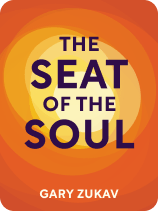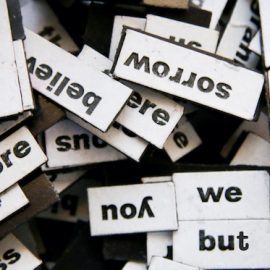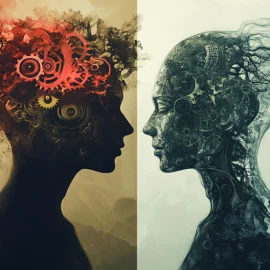

This article is an excerpt from the Shortform book guide to "The Seat of the Soul" by Gary Zukav. Shortform has the world's best summaries and analyses of books you should be reading.
Like this article? Sign up for a free trial here .
What is the law of karma? What impact does it have on your life? How can you balance your karmic debt?
The Seat of the Soul is Gary Zukav’s best-selling exploration of the soul’s evolutionary journey through the material realm. He explains what karma is and discusses the power it has in your life—and what power you have to affect it. He also talks about how to balance your soul’s karmic debt.
Read more to learn about Zukav’s understanding of karma.
The Law of Karma
An important part of the soul’s healing, Zukav says, involves balancing its karma. What is the law of karma? It’s an impersonal law of the universe that equates to “what goes around comes around,” or, for every action there’s an equal and opposite reaction. So, Zukav explains, everything that happens to you in life is related to the karma of your soul.
The karma of your soul is also what determines your personality characteristics, he says. Your temperament, your dispositions, and so on, were created based on what your soul needs to learn in this lifetime, to balance its karma. And, all of your reactions to life experiences will determine whether your soul balances its karma or creates more karmic debt, Zukav says.
When you act out of anger, for example, anger will come back to you. After you (or your soul in a subsequent lifetime) experience these negative results enough times, he explains, you will eventually learn the lesson to not act from anger. As long as you’re acting unconsciously, from your lower self, you will keep having to learn these kinds of lessons the hard way.
Zukav explains that, after you die, your soul will go to have its karma weighed out again, to determine what it still needs to learn. He says that karma has no value judgment. If you recognize that the bad things that happen to you are a result of your soul needing to balance its karma, you will refrain from reacting negatively. If you react in a hostile or vengeful way, Zukav says, you only create another karmic debt that must be paid later, in your lifetime, or your soul’s next one. Therefore, he says that nothing that happens in the world is ever really “unfair”—everything is a soul experiencing what it needs to experience to balance its karmic energy. So, making value judgments, such as judging something as right or wrong or judging people as better or worse, only creates negative karma. Zukav says that we need to practice compassion and “non-judgmental acceptance” even toward those who harm us. He calls this “non-judgmental justice”—the ability to observe everything as being a product of karmic balance and not judging it. This is the way to balance your soul’s karmic debt.
| Balance Your Karma Karma is a central concept in the Hindu belief system—the word itself means “action,” as it’s essentially a measure of the energetic impressions formed by all your actions. Deepak Chopra describes it as like a “software” that runs your life. He says that, according to the Hindu Vedantic tradition, karmic energy is created and stored in your soul across many lifetimes, so it affects who you are and everything you do in this lifetime. You’re constantly creating karma with your words, deeds, thoughts, and lifestyle, whether it’s intentional or not. Chopra says all of the karmic energy you generate will be returned to you in the same measure, but that you can control whether that brings you happiness or suffering by directing your actions to create good karma. He gives some advice for increasing your positive karma, including: Choose to act in ways that will serve the highest good, for yourself and others. Be forgiving of any wrongdoings against you. Remember any harm that’s been done to you was a result of your own karma, so forgive and move on. Practice gratitude. Remember when bad things happen to you, it’s a balancing of a karmic debt—so be grateful for it. Pay attention to astrology. It can provide you with real insight into your life. Seek out a spiritual teacher who can help guide you. Find your dharma, or life’s purpose, and live in alignment with it. Practice meditation. It’s the most powerful tool for spiritual growth. |
Exercise: Reflect on Your Karma
Zukav says the spiritually powerful person has the following qualities:
- Humble
- Harmless
- Non-competitive
- Non-materialistic
- Free to be themselves
- Forgiving
- Wise
- Loving
This means nurturing these qualities will spiritually empower you, and bring positive karma to your life.
Reflect on where you see these qualities, or the lack of them, in your life—in your actions, your choices, and your relationships. Where do you see the biggest lack, in yourself?
How can you make some practical changes to nurture these qualities where they’re lacking?
Following the advice above, set intentions to nurture those qualities, and try a meditation practice to establish and increase them in yourself and your life. For example, if you find that you are holding grudges, meditate on the intention to cultivate forgiveness in your heart.

———End of Preview———
Like what you just read? Read the rest of the world's best book summary and analysis of Gary Zukav's "The Seat of the Soul" at Shortform .
Here's what you'll find in our full The Seat of the Soul summary :
- An exploration into your soul’s purpose
- How to align your life with your soul's purpose
- How humans have become disconnected from their spiritual natures






